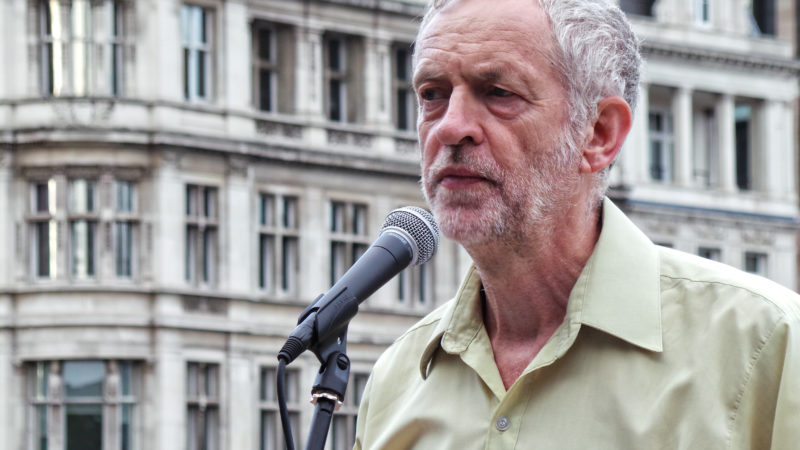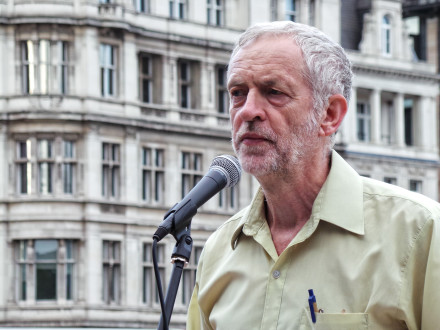

It is the one place you thought you would never find him. Yes, Jeremy Corbyn, the veteran left-winger whose denunciations of New Labour carried him to the very top of the party, has just been named as the “keynote speaker” at the annual conference of Progress, the keeper of the Blairite flame.
It is surprising, to say the least. And it is, perhaps, a clever move from both sides, who each represent the vanguard of the debate currently raging in the Labour party. Suddenly, after months of low-level warfare between Corbynistas and “moderates”, you can hear the sound of weapons being laid down – temporarily at least.
Now that doesn’t mean everything suddenly becomes calm and peaceful in the Labour movement but it may be a sign of both wings of the party beginning to make an accommodation with their opponents. Perhaps someone prompted them to re-read the Labour constitution which, as you all know, outlines the party’s core values as the belief “that by the strength of our common endeavour we achieve more than we achieve alone… in a spirit of solidarity, tolerance and respect”.
Some of those final three virtues have been missing at times in recent months but Corbyn’s decision to accept Progress’ invitation is a significant moment in Labour’s journey after its overwhelming choice of new leader on September 12. It will now be that little bit harder for centrists and leftists to attack each other for failing adopting an “extreme” position, which is one of the current criticisms of choice.
When Corbyn gets to the TUC in London he will find an audience rather different to the one he is used to addressing. While he might be used to looking out from the podium at a sea of seasoned anti-cuts and anti-war protestors, he will tomorrow find himself gazing at Alison McGovern, Wes Streeting and Tristram Hunt. Yes, Tristram, the former shadow Education Secretary who was booed and jeered – unfairly – when he emerged from the Queen Elizabeth II Centre on the day the new leader was announced.
So what will he say? That much seems unknown but one might expect it to be very different to his usual denunciations of neoliberalism.
A call for a gentler, kinder politics? There is no reason why not. It is one of the areas in which Corbyn would no doubt agree with McGovern, the chair of Progress. Both want to see courtesy at the heart of the debate over the future of the left.
A condemnation of austerity? Perhaps. It is not just the left of the party which oppose spending cuts. Each centrist MP has a constituency to champion and will have seen the devastating impact of George Osborne’s mismanagement of deficit reduction, delivering the very opposite of his pledge not to “balance the budget on the backs of the poor”.
An angry denunciation of the Iraq War? Probably not. There are no doubt defenders of the 2003 invasion among the rank-and-file membership of Progress and, if Corbyn is speaking at their annual shindig, then it is because he either wants to reach out to them or, more prosaically, is aware of the damage being done to our electoral prospects by the sniping between the two sides of the party. Stop the “running commentary”, he pleaded with the PLP on Monday.
There are however, plenty of areas on which Corbyn and his hosts can agree: Osborne’s repeated raids on the poor; the Tories’ attempts to hamstring trade unions and stifle democracy through the TU Bill; the link between Britain’s prosperity and its place in the EU; and so on.
It is on these areas that Corbyn will find some common ground with delegates who, one assumes, are Corbyn-sceptics. Remember, after all, that at the height of the leadership election last summer an editorial in the Progress magazine advised readers that “Kendall is the first, right and heartfelt choice. You pick the remaining order but do not fail to cast both two and three for anyone but Corbyn”.
I am sure nobody will so impolite as to bring up those words tomorrow – or John McDonnell’s description of some Progress members as “hard right” – but it will be intriguing to see what questions come at Corbyn from the floor.
Whatever the outcome, be it hugs and outbreaks of comradeship, or more likely a temporary truce, it will be fascinating. I’ll be there.




More from LabourList
Government announce SEND reform in schools white paper
SPONSORED: ‘Industrial hemp and the challenge of turning Labour’s priorities into practice’
‘A day is a long time in politics, so we need ‘action this day’’